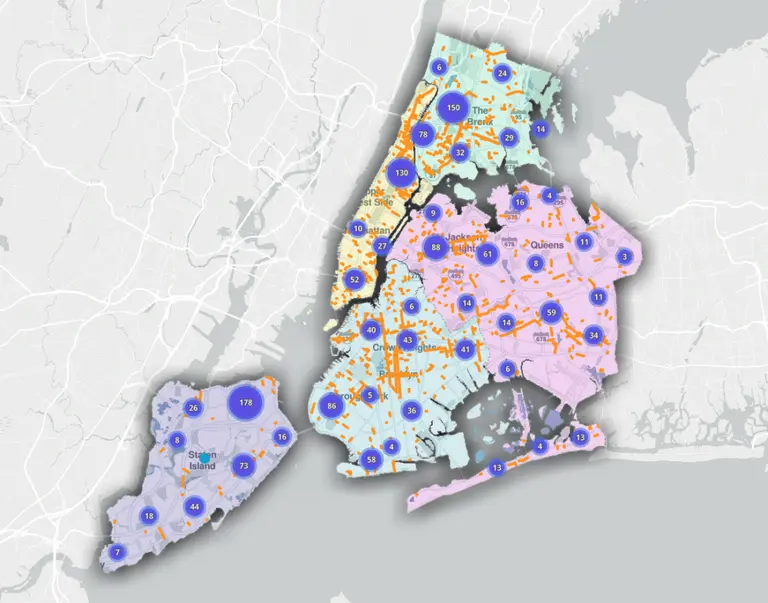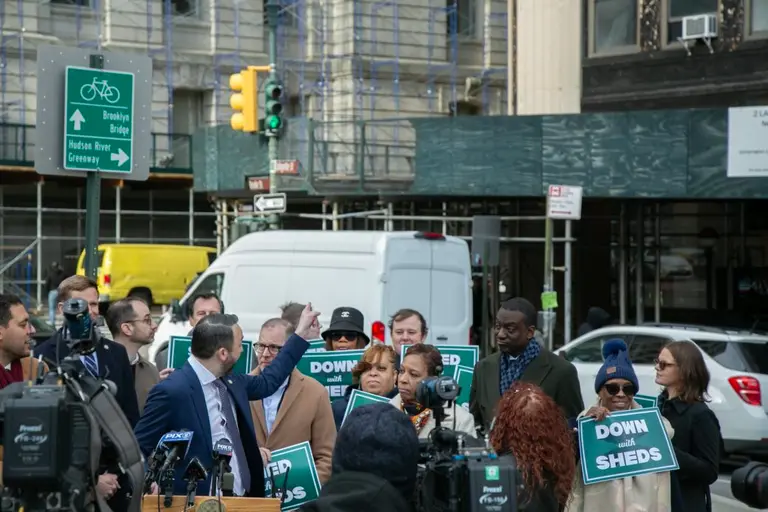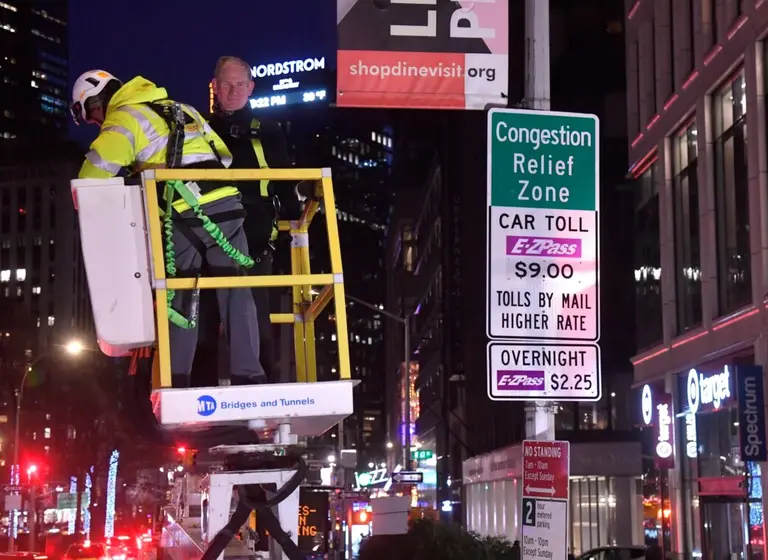NYC reveals automated, side-loading garbage truck
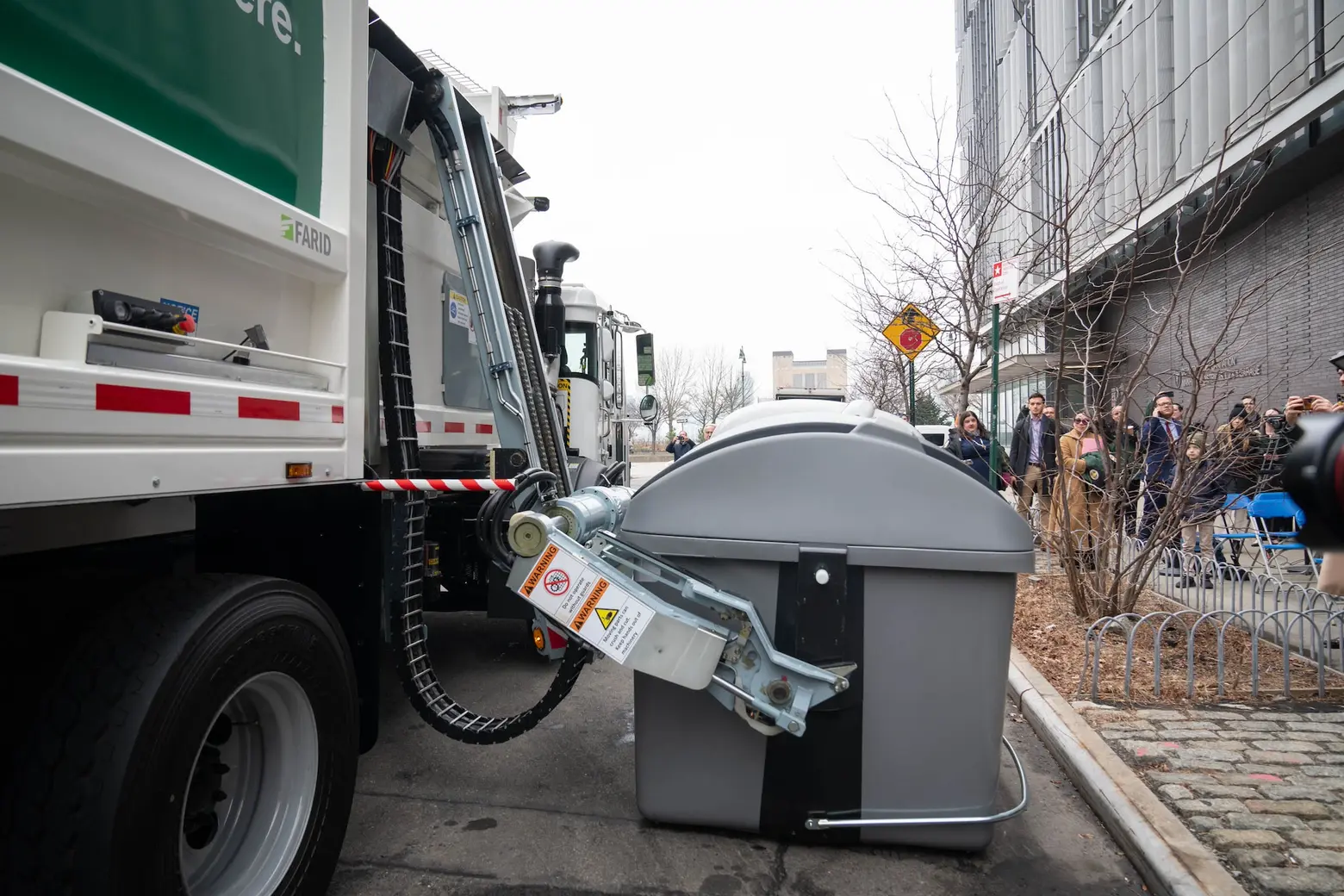
Courtesy of Ed Reed/Mayoral Photography Office on Flickr
A revolutionary garbage truck is hitting New York City streets, four years ahead of schedule. Mayor Eric Adams last week revealed a new automated side-loading garbage truck that will allow Department of Sanitation workers to easily collect trash from large containerized bins at high-density residential buildings. With the use of the new trucks and a data-driven containerization model, Manhattan Community Board 9 will be the first district to have 100 percent of its garbage containerized next year.
“The new garbage truck we’re unveiling today — four years ahead of schedule — represents the future of New York City garbage collection. It means we’ll be able to containerize trash from our large residential buildings, something people didn’t believe would be possible in our dense city,” Adams said.
“And thanks to that truck and our commitment to turning our streets from mean to clean, residents of Manhattan’s Community Board 9 will be the first in the city to experience our streets free of every single black bag.”
First revealed in DSNY’s 2023 “Future of Trash” report, the new garbage trucks utilize the side-loading technology required to properly service the on-street containerization bins that all high-density residential buildings will use to store trash. At the time, industry experts said that the development of the truck would take up to five years.
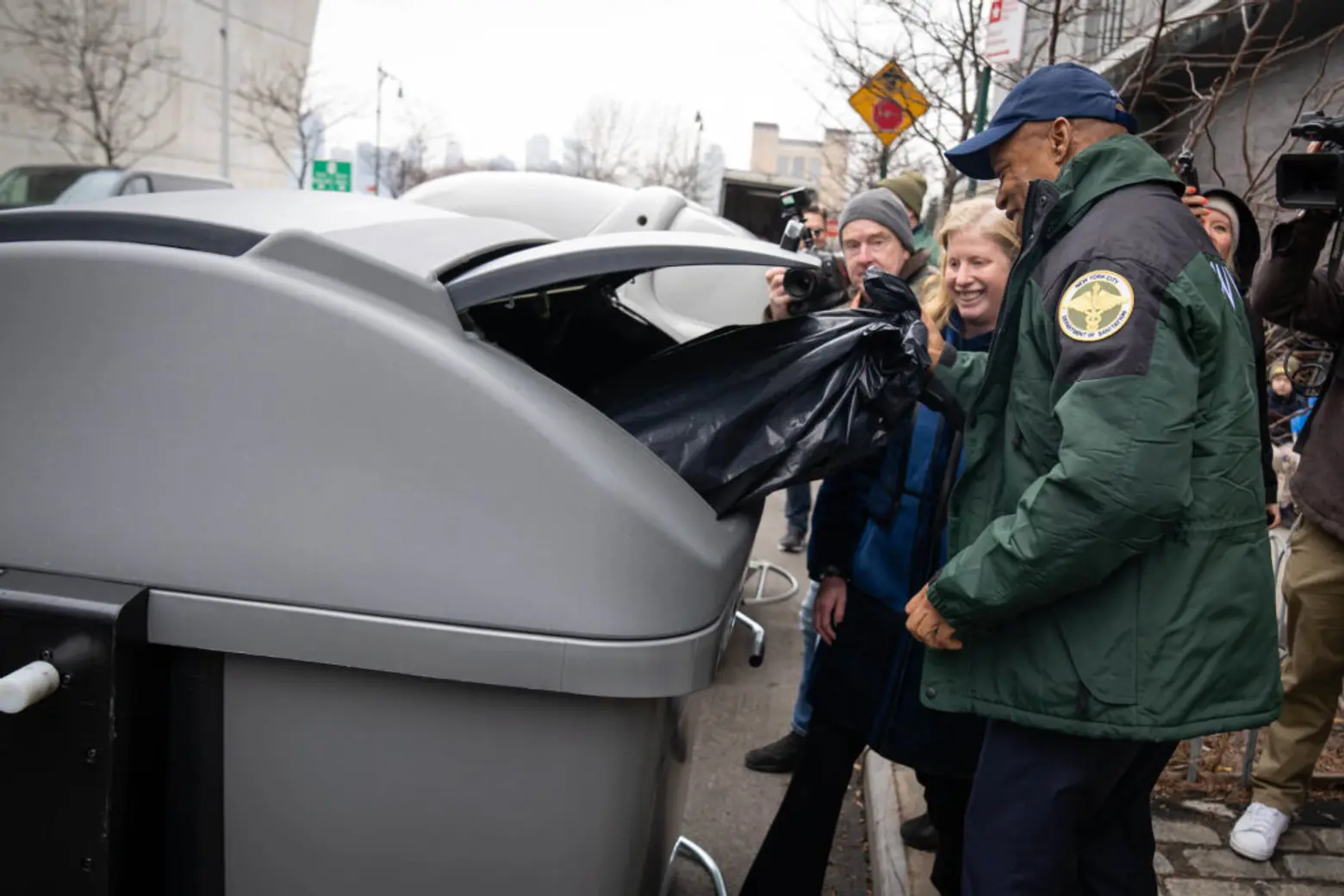
The city revealed a new data-driven model to determine the type and size of containers that will be used for buildings depending on their density. Under the model, buildings with 31 or more residences will be required to store their trash in on-street containers which will be serviced by the new garbage trucks. These containers will be used solely by specific buildings and their residents.
Buildings with 10 to 30 residences will be able to choose between stationary on-street containers and smaller bins with wheels, while buildings with one to nine units will be required to store their trash in individual bins with wheels starting this fall. The model was determined based on an analysis of how much trash buildings of different sizes produce on average.
With the implementation of the new trucks and data-driven strategy, Manhattan’s Community Board 9 is set to become the city’s first district with 100 percent of its garbage containerized and serviced in 2025. The district is already home to a successful containerization pilot program on 10 residential blocks and at 14 schools which has led to rat sightings dropping by 69 percent compared to the same period last year.
The use of the new trucks and installation of new bins will begin in Community Board 9 in the spring of 2025.
“New Yorkers have been clear: they’ve had enough of the black bags occupying our sidewalks, enough of the oozing garbage juice, and enough of being told that other global cities can have something that we can’t,” DSNY Commissioner Jessica Tisch said. “This administration rejects the cynicism that says things can’t change, and the speed at which we’ve moved to change the relationship between 8.3 million New Yorkers and 44 million daily pounds of trash cannot be overstated.”
Last September, Adams announced that all businesses would be required to store their trash in lidded containers starting on March 1, 2024. Businesses can choose any type of container they want as long as it has a lid, secure sides, and is stored inside or within three feet of the property line.
DSNY also revealed a new, modernized litter bin last September that will gradually replace the city’s old green wire mesh trash cans. The bin features a can made of three parts: a concrete base to prevent it from falling over, a hinged metal lid, and a removable lightweight plastic basket for sanitation workers to empty, according to the New York Times.
RELATED:
